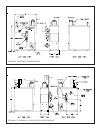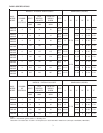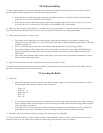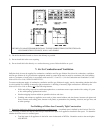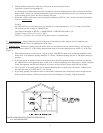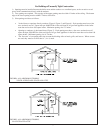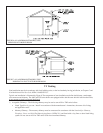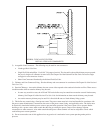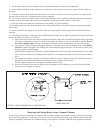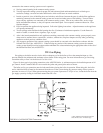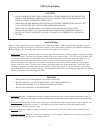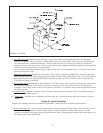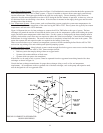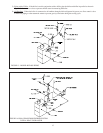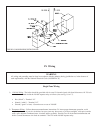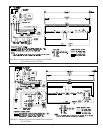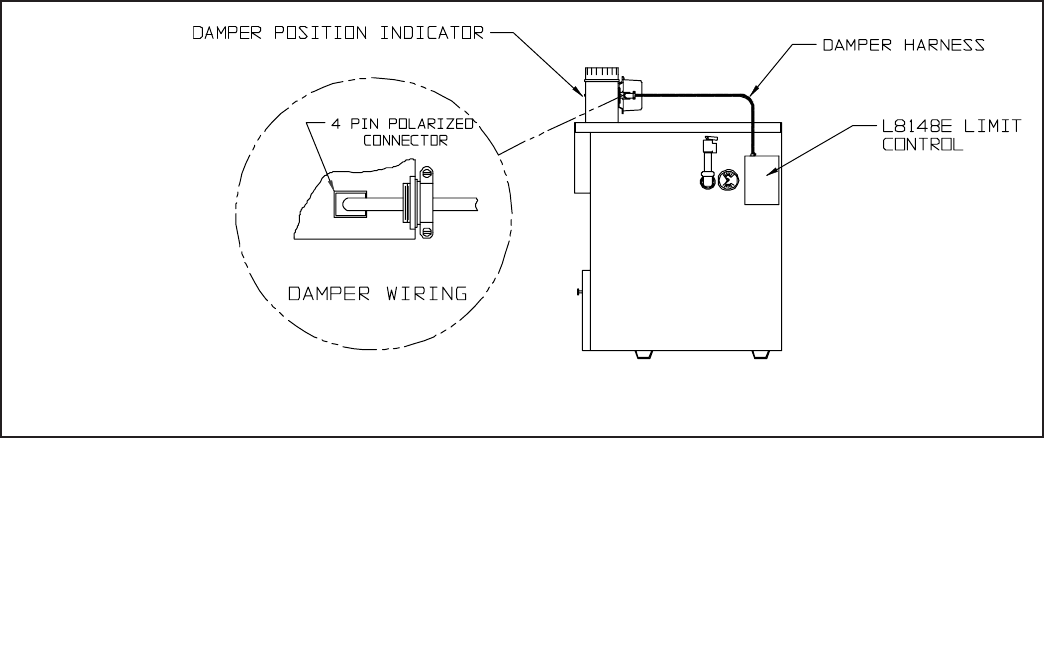
12
7) Do not connect the boiler into a chimney flue serving an open fireplace or other solid fuel appliance.
8) Prior to boiler installation, inspect chimney for obstructions or other defects and correct as required. Clean chimney as
necessary.
9) Vent pipe should slope upward from draft diverter not less than one inch in four feet. No portion of vent pipe should
run downward or have sags. Vent pipe must be securely supported.
10) The vertical section of vent pipe coming off the boiler should be as tall as possible, while still maintaining the proper
clearance from the horizontal vent connector to combustibles and the proper pitch called for in (9) above.
11) Vent pipe should be installed above the bottom of the chimney to prevent blockage.
12) Vent pipe must be inserted flush with inside face of the chimney liner and the space between vent pipe and chimney
sealed tight.
13) Do not install the vent damper in any portion of the vent system which is used by appliances other the boiler being
installed.
14) Vent damper installation is mandatory on all AWI/TWI boiler models due to federally mandated efficiency regulations.
Install vent damper (see Figure 9) as follows:
a) Open vent damper carton and remove installation instructions. Read the instructions thoroughly before proceeding.
Verify that vent damper is same size as draft diverter outlet. See Figure 1. Unpack vent damper carefully. Do not
force closed damper blade. Forcing vent damper closed may result in damaged gear train and void warranty.
b) Vent damper is factory shipped having approximately ¾” diameter hole in the vent damper blade, which must be
left open for boilers equipped with standing pilot, and should be plugged on boilers with EI control system, using
the plug supplied with the damper.
Mount the vent damper on the flue collar without modification to either and secure with sheet metal screws. Make
sure screws do not interfere with damper blade operation. Vent damper blade position indicator must be visible to
users.
c) The damper wire harness is shipped wired into the boiler limit control. Plug the loose end of this harness into the
damper and secure the flexible conduit to the damper using a connector nut provided.
Provide adequate clearance to combustible construction and servicing.
d) Install vent connector pipe and vent fittings from vent damper outlet to chimney or gas vent. Secure with sheet
metal screws and support as required.
Removing an Existing Boiler from a Common Chimney
In some cases, when an existing boiler is removed from a common chimney, the common venting system may be too large
for the remaining appliances. At the time of removal of an existing boiler the following steps shall be followed with each
appliance remaining connected to the common venting system placed in operation, while the other appliances remaining
FIGURE 9: VENT DAMPER INSTALLATION DETAILS
RIGHT SIDE VIEW
10



